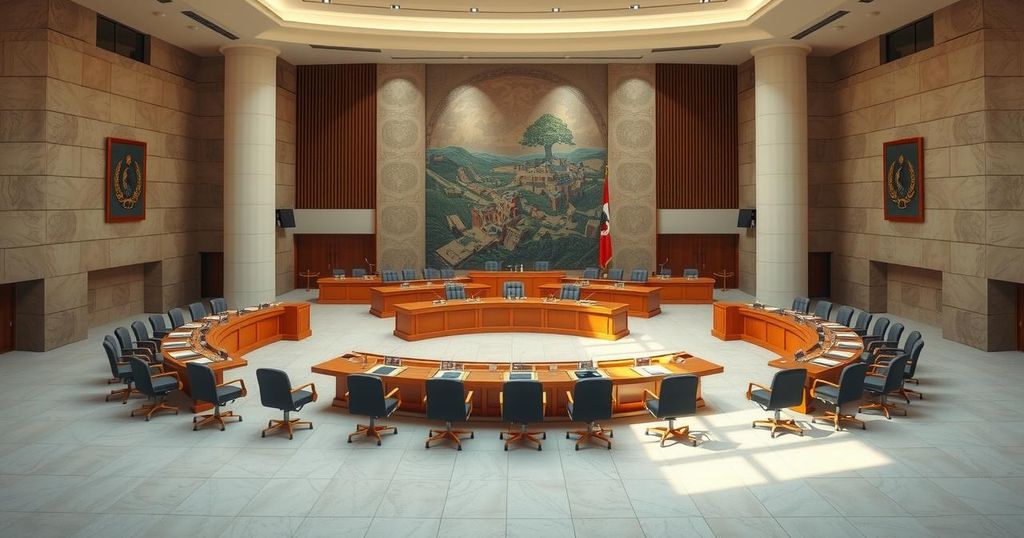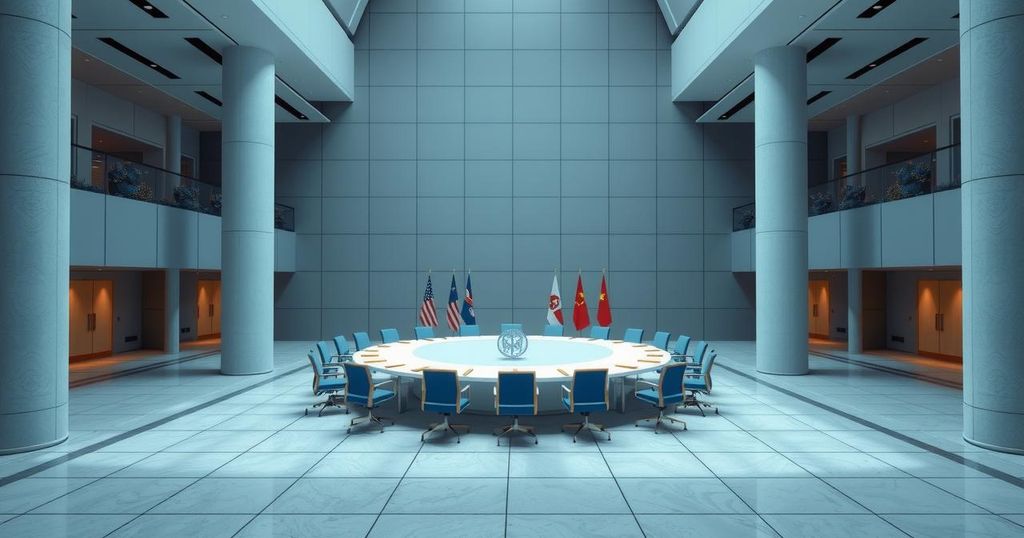Benjamin Netanyahu delayed a cabinet vote on a ceasefire with Hamas due to claims of renegotiation by Hamas, leading to uncertainty about the agreement’s approval. Despite ongoing celebrations from both sides regarding the ceasefire announcement, Israeli airstrikes continued, prompting concerns about humanitarian conditions in Gaza. Future phases of the agreement aim to release hostages and initiate reconstruction efforts in the region.
Israeli Prime Minister Benjamin Netanyahu announced the postponement of a cabinet vote on a ceasefire agreement with Hamas due to claims that Hamas reneged on certain aspects of the deal. His office indicated that a “last-minute crisis” is preventing the cabinet meeting until Hamas withdraws its revised position. This delay raises uncertainty regarding the approval process as discussions continue.
Amidst ongoing negotiations facilitated by Egypt, Qatar, and the United States, a ceasefire agreement initially set for implementation on Sunday has caused widespread celebration among both Israeli and Palestinian populations. The phased deal includes the exchange of hostages and the release of Palestinian prisoners held by Israel.
In his national address, Israeli President Isaac Herzog emphasized the need for the cabinet’s approval of the ceasefire deal, acknowledging challenges that lie ahead. The Qatari Prime Minister revealed that the first phase of the agreement, lasting 42 days, anticipates the release of 33 captives by Hamas, alongside a strategic withdrawal of Israeli forces.
Details of the ceasefire outline a series of interconnected stages including a halt to military operations, the return of displaced individuals, and the facilitation of humanitarian aid. However, despite the announcement of a ceasefire, Israeli airstrikes continued in Gaza, resulting in significant casualties and exacerbating the humanitarian situation.
The ongoing conflict has resulted in over 46,700 deaths and extensive displacement in Gaza. The plan for subsequent phases of the agreement will commence shortly, aiming for the complete release of hostages and a sustainable ceasefire. Additionally, reconstruction efforts will be addressed in the final phase under the guidance of international mediators.
This situation has led to international attention, as negotiations reflect the broader geopolitical dynamics in the region.
The ongoing conflict between Israel and Hamas has escalated since the surprise attack on October 7, 2023, which has led to a devastating humanitarian crisis in Gaza. Both sides have engaged in dialogue facilitated by international mediators seeking to establish a long-term resolution and ceasefire. Recent efforts have focused on a structured approach to ceasefire and hostage release, which remains fragile due to conflicting interests and last-minute changes in agreement terms.
The delays in the cabinet vote on the Gaza ceasefire underscore the fragility of the agreement with Hamas, which aims to prioritize humanitarian relief and the exchange of hostages. Despite the significant public response to the proposed ceasefire, the Israeli government faces challenges in navigating its terms and ensuring compliance from all parties involved. As negotiations progress, the international community remains attentive to the developments surrounding the ongoing conflict.
Original Source: www.egypttoday.com




